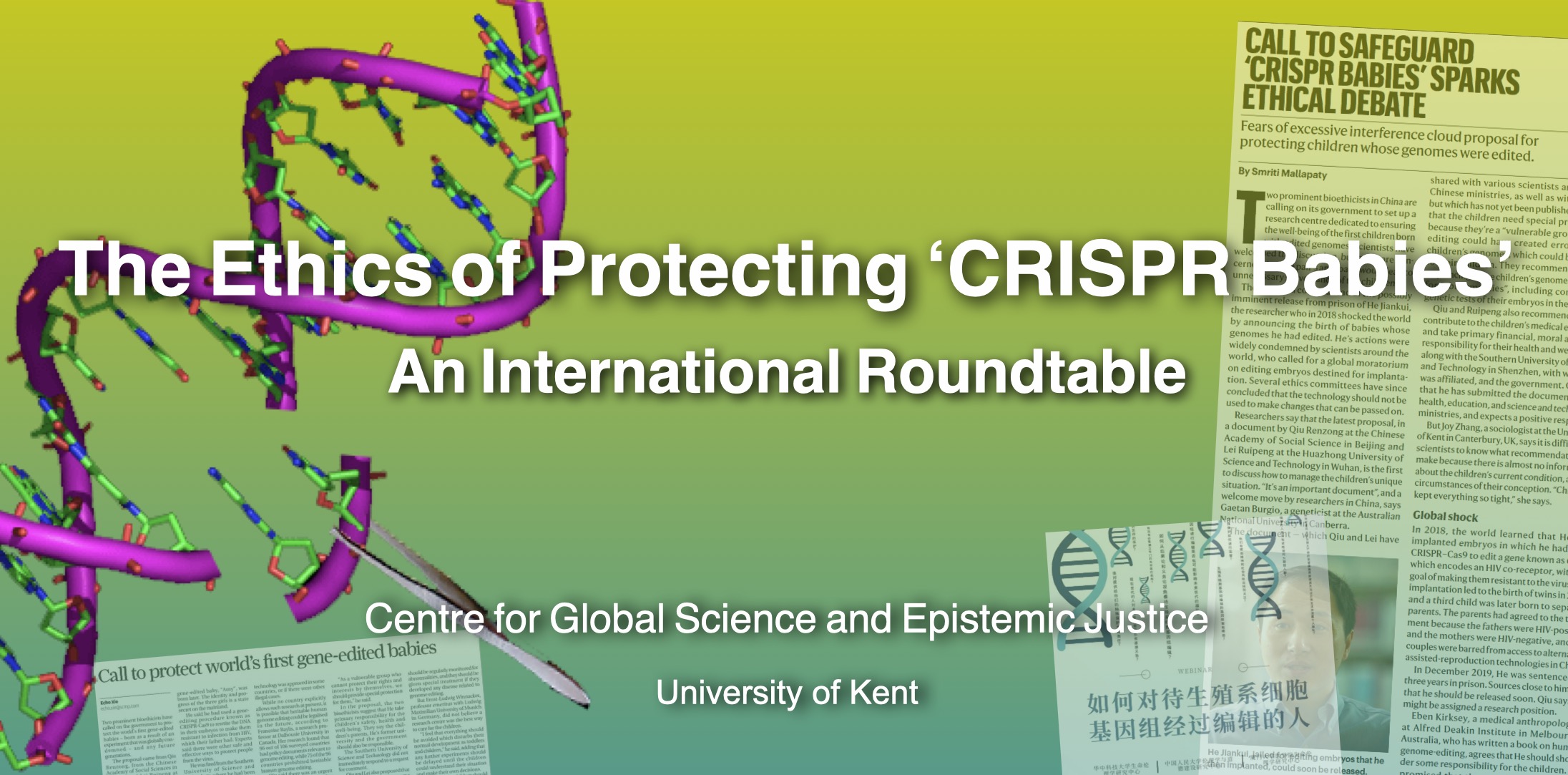On 18th March 2022, the Centre convened an international roundtable as a response to two leading bioethicists, Ruipeng Lei and Renzong Qiu who proposed a ‘special protection’ to be set up in China for the world’s first three genome-edited children, ’a new group of vulnerable population’. Describing the three children, Lulu, Nana and Amy, as the result of Jiankui He’s ‘genetic mayhem’, Lei and Qiu proposed that a proactive protection plan was warranted by ‘moral obligations for future generations’.
We invited 10 panellists including Robin Lovell-Badge, Sarah, Chan, Helen O’Neil, Ayo Wahlberg, Benjamin Hurlbut, Eben Kirksey, Ruipeng Lei, Hubert Kang, patient representative Jay Johnson and Ryan Ferrell who worked with Jiankui He. The event was chaired by GSEJ’s Director Dr Joy Zhang, who had a series of in-depth conversations with academics in China in the five weeks leading up to the roundtable to understand the evolving situation. Six other participants who were involved in these conversations were also invited to attend the meeting.
The panel identified concrete actions on protecting genome-edited children and (future) individuals in comparable situations, and on how open and inclusive deliberation on this issue can take place in and with China.
We particularly want to underline a point made by many participants. That is, there is a need to develop more appropriate vocabularies to accurately reflect the nature of the challenge embodied by new technologies and their social consequences. GSEJ is committed to hosting and facilitating future collaborations to develop a language that is of cosmopolitan resonance. We thank all participants at the Roundtable for their time and dedication to promote accountable science globally, and for their contribution to a frank and productive discussion.
Full report can be access here.

